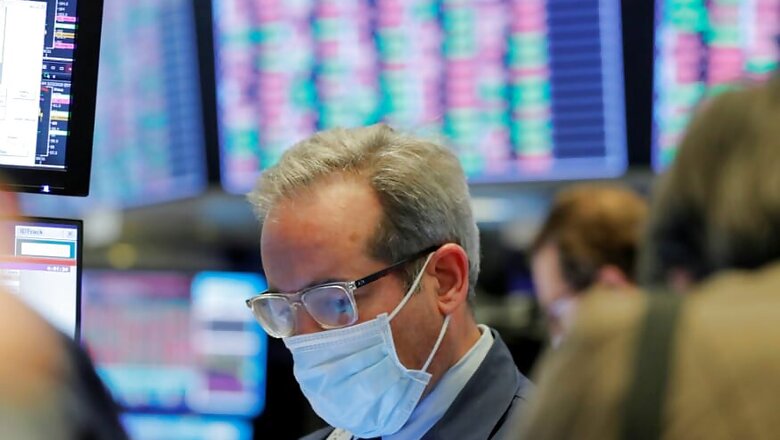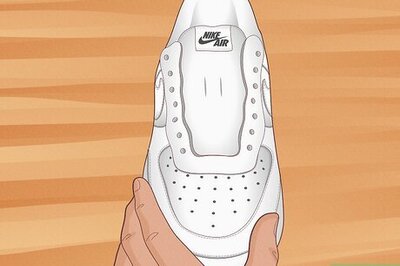
views
A dramatic bounce in US stocks in the midst of the coronavirus pandemic is confronting investors with a difficult decision: buy into what may turn out to be a nascent bull market, or hold out for a possible return to recent lows.
The benchmark S&P 500 index's 12% rally last week - its best weekly gain since 1974 - makes that choice even more pressing. The index has now made up about half the losses from its recent plunge, although it is still down nearly 18% from its February 19 record high.
Few investors have been able to time market bottoms, which become evident only in hindsight. Still, if history is any guide, early movers may have the advantage - if they can stomach a possible rollercoaster ride to the bottom and back up again.
Investors who bought the S&P 500 three months before it bottomed during each of the last nine bear markets saw an average gain of 21% a year later. Those who bought three months after the low gained an average of 7%, according to a Reuters analysis.
And the market tends to deliver its most powerful gains in the month after a bottom is reached, a Goldman Sachs study found. The S&P 500 has posted a median return of 15% during the month following the trough of eight bear or near-bear markets over the past 40 years.
If the current bounce holds, that could mean the biggest gains are already in the rear-view mirror. For some investors, however, arriving late is a reasonable price to pay for worrying less about the possibility of a market reversal.
“If you think you've caught the bottom and then it continues to go lower, people get really scared,” said Randy Frederick, vice president of trading and derivatives for Charles Schwab in Austin, Texas. “And then they tend to make emotional decisions and sell some of those things that they bought.”
Bears in the Woods
King Lip, chief investment strategist at Baker Avenue Wealth Management, is content to hang on to a much larger-than-usual allocation to cash despite the recent bounce.
His firm began selling positions as the novel coronavirus took hold globally. By mid-March, clients’ portfolios typically stood at 50% cash.
“We are ready to reengage as long as we start to see more and more evidence that the (coronavirus) cases are slowing,” Lip said.
Indeed, many believe the market has not fully factored in the damage to the economy and companies’ earnings that the coronavirus has already wrought: a recession is almost certain, and nearly 17 million Americans have filed for unemployment benefits in the last three weeks.
Analysts at BofA Global Research said in a note last week that it would be "unprecedented" if the S&P 500 "failed to re-test or even fall below" its low on March 23, based on an analysis of past bear markets during recessions. Similar bear markets have lasted an average of around 11 months, their research showed.
The recent bounce should be viewed as “an unenthusiastic, inorganic bear market rally,” Nomura’s analysts said in a report.
Believe in the Fed
Paul Nolte, who oversees some $100 million at Kingsview Asset Management in Chicago, said the wait-and-see strategy had served him well during the financial crisis in 2008.
After shifting exposure to bonds from stocks by mid-2008, Nolte said he missed the bottom of that more-than-50% drop by several months but started buying equities in June 2009 as markets rebounded.
Lately, he’s been edging back into equities, in part through exchange-traded funds focused on technology and healthcare stocks.
He’s not alone: investors poured $17.6 billion into equity-focused funds in the week to last Thursday, a year high, according to EPFR Global.
Many have taken heart from the unprecedented stimulus efforts pushed through by the Federal Reserve - especially the central bank’s decision to relaunch large-scale asset purchases in a bid to support markets and boost investor confidence.
“The most powerful central bank in the world is beating you over the head and telling you, 'we’re not letting this go any lower,'” said Christopher Stanton, chief investment officer at Sunrise Capital Partners LLC in San Diego.
Stanton is betting on gains in big technology companies like Apple and Google-parent Alphabet.
“I feel very firmly that these are the lows,” he said.



















Comments
0 comment